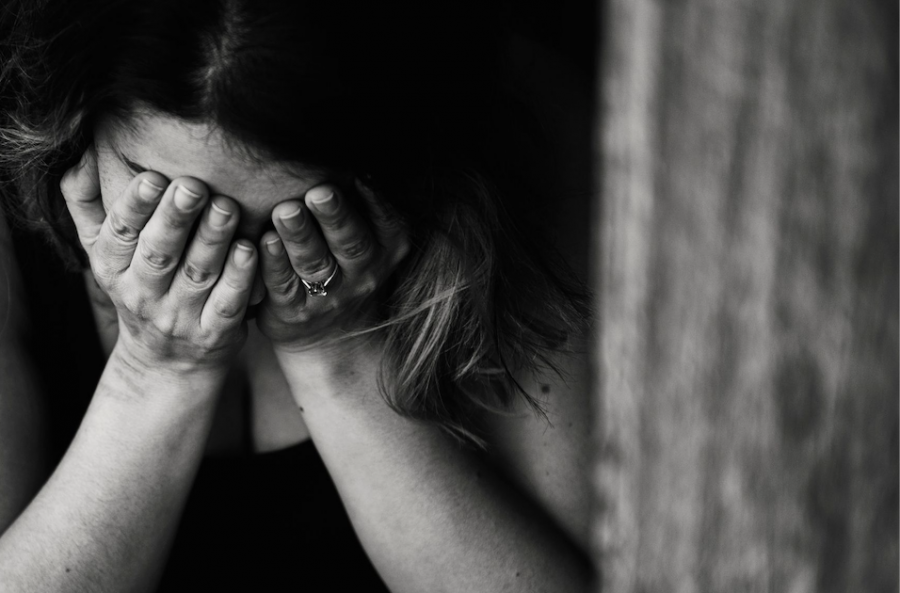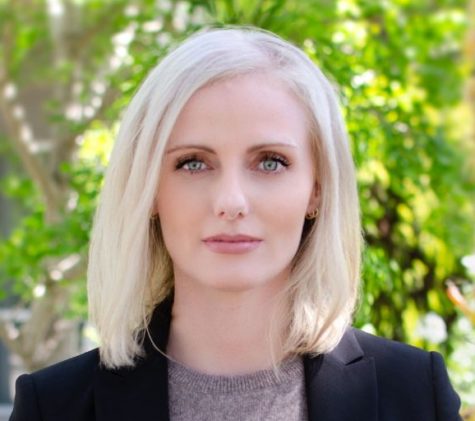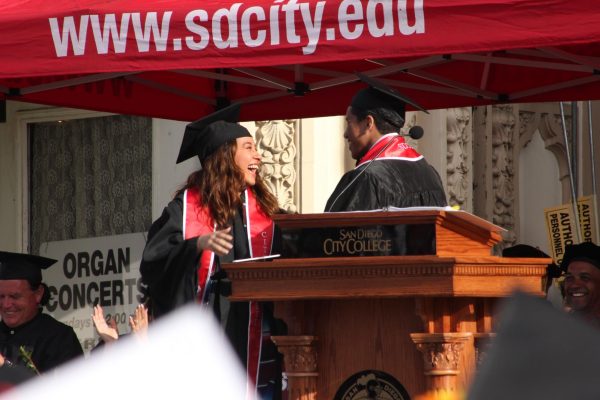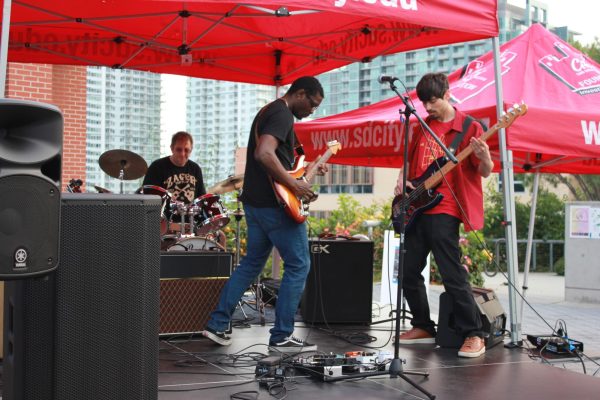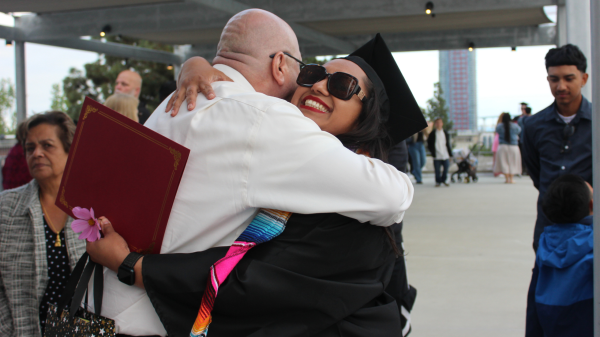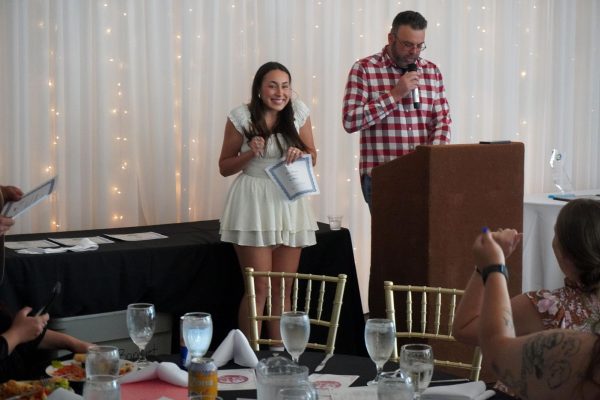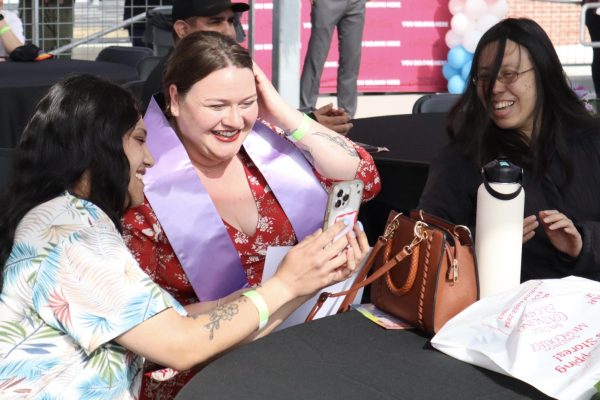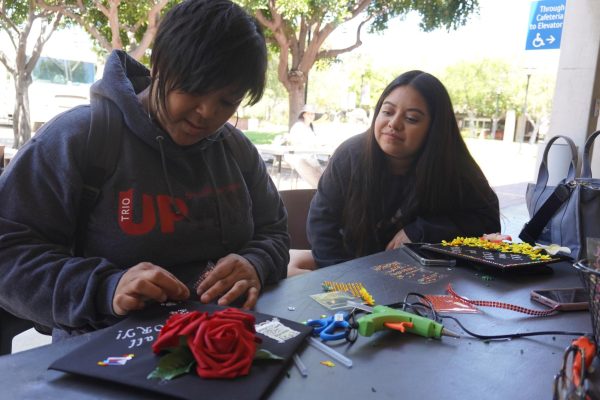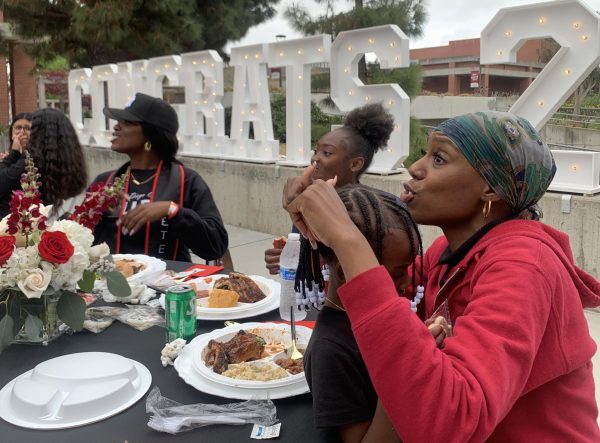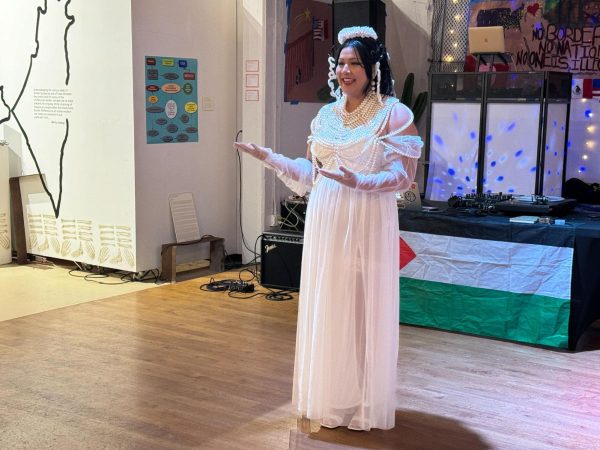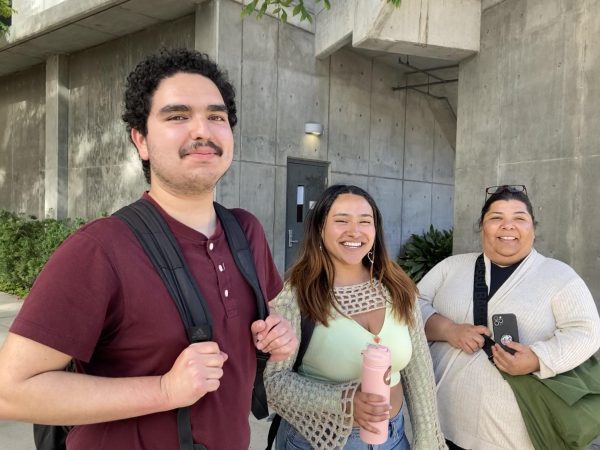City College workshop on grief helps students navigate loss
Carrying On is a four-part series that continues on March 16
March 10, 2021
Over 500,000 lives have been lost in the United States to COVID-19 since the first recorded death in February 2020, according to the Centers of Disease Control and Prevention.
A recent study published by the National Academy of Sciences estimates that each COVID-19 death will result in nine people experiencing the loss of a loved one.
In addition, many of us have lost jobs, friends, access to personal space and possibly a sense of certainty about the future. Any of these non-death losses can result in significant grief, especially if they go unrecognized.
“In March 2020, I thought there is an intense need that is going to arise on our campus,” said Maddie Lawrence, a mental health counseling intern at San Diego City College.
In response to this need, Lawrence and Laurel Marks, a social work intern at City, partnered to design Carrying On, a four-part grief workshop series presented by the Student Health Center through May.
The second meeting of the series, Navigating Grief, will focus on recognizing different types of grief and how we experience them.
The Navigating Grief workshop is open to all students and will take place on March 16 from 3-4 p.m. on Zoom. The meeting ID is 912-1950-8033 and the passcode is 714906.
In our society, non-death losses, such as a job or friendship, often go unrecognized and are seen as less important than losing a loved one. Marks explained that grief cannot be compared, and if we experience grief after a loss, no matter how small, it is important to process it.
“It is okay to acknowledge that and feel it because if you don’t, it gets pushed aside for later,” she said.
According to the Mayo Clinic, when grief goes unresolved, it can keep a person in an intense and prolonged state of grieving that delays healing and often significantly impacts their quality of life. Common symptoms include persistent disrupted sleep, loss of appetite, anxiety, distress, anger, sadness or disbelief.
The subsequent meetings in the series will take place on April 20 and May 11 from 3-4 p.m. Topics covered include mourning together and finding hope.
In addition to conducting workshops, the Student Mental Health team offers virtual individual counseling sessions to all City students.
“We are really proud to say that we don’t have a waitlist and so we are really available to help whoever needs support,” Marks said.
For more information about this workshop series, or to make an appointment, contact the Student Health Center at (619) 388-3055 or [email protected].


